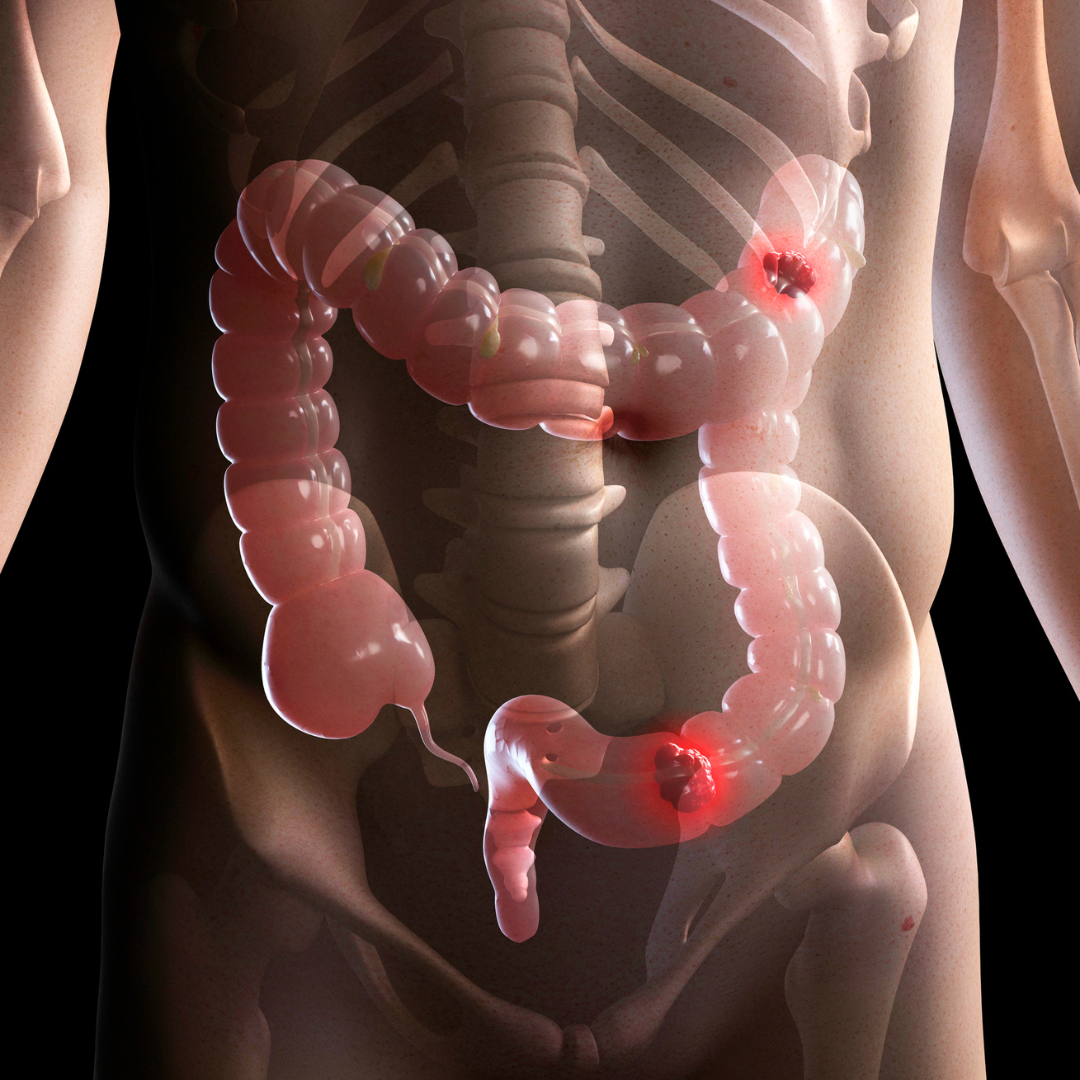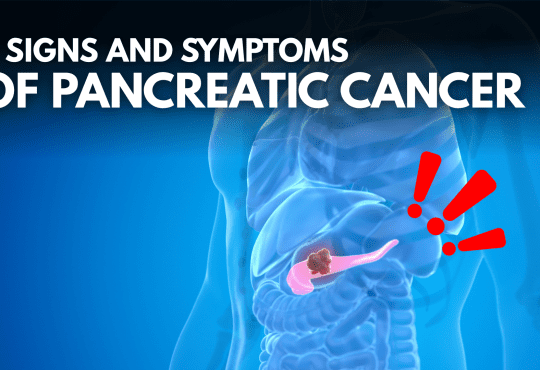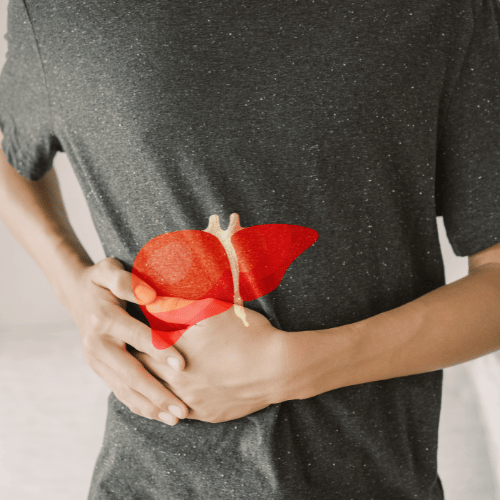
5 Signs and Symptoms of Colon Cancer
Colon cancer, also known as colorectal cancer, is one of the most common types of cancer worldwide.
Detecting colon cancer early is crucial for successful treatment and improved outcomes.
By understanding the warning signs, you can be proactive in seeking medical attention and increasing your chances of early detection.
Colon cancer typically develops from abnormal growths, called polyps, in the colon or rectum.
Over time, these polyps can turn cancerous and cause various symptoms that should not be ignored.
It’s important to note that these symptoms can also be associated with other conditions, but it’s always best to consult with a healthcare professional for proper evaluation and diagnosis.
Today, we will discuss five key signs and symptoms of colon cancer that you should be aware of.
Now, let’s start our countdown of the 5 Signs and Symptoms of Colon Cancer starting with…
Number 5. Persistent Changes in Bowel Habits
Our digestive system and bowel movements can give us important clues about our overall health.
Changes in bowel habits, such as persistent diarrhea or constipation, alterations in stool consistency or shape, and a sense of incomplete bowel movements, can be potential indicators of colon cancer.
Persistent diarrhea is characterized by frequent loose or watery stools that last for more than a few days.
On the other hand, constipation refers to infrequent bowel movements, often accompanied by straining and difficulty passing stool.
These changes in bowel habits can be a cause for concern, especially when they are consistent and unexplained by changes in diet or lifestyle.
Why is it important to bring these changes to your doctor’s attention?
Well, persistent alterations in bowel habits can sometimes be an early sign of colon cancer.
Research has shown that changes in stool consistency and frequency can be linked to abnormal growths, or polyps, in the colon.
A study published in the New England Journal of Medicine found that individuals with persistent changes in bowel habits were at an increased risk of developing colorectal cancer compared to those without these symptoms.
Additionally, a feeling of incomplete bowel movements, where you have an ongoing sensation that you haven’t fully emptied your bowels, can also be a potential symptom of colon cancer.
This sensation can occur even after having a bowel movement.
While there can be various causes for this feeling, it’s important to discuss it with your doctor to rule out any serious underlying conditions.
Remember, these changes in bowel habits can be caused by several factors other than colon cancer, such as dietary changes, stress, or other gastrointestinal conditions.
However, it’s crucial not to dismiss persistent and unexplained alterations in your bowel movements.
Consulting with your doctor allows for a proper evaluation and necessary investigations to identify the underlying cause.
By being proactive and bringing any unexplained and consistent changes in bowel habits to your doctor’s attention, you can ensure early detection and intervention if necessary.
Regular screenings for colon cancer, especially for individuals at higher risk, are also crucial in detecting the disease at an early stage when treatment is most effective.
So, listen to your body and pay attention to any persistent changes in your bowel habits.
Your gut health is an essential aspect of your overall well-being, and by taking these signs seriously and seeking medical advice, you are taking an active role in your health and potentially preventing or catching colon cancer at an early and treatable stage.
Number 4. Blood in the stool
The presence of blood in the stool, regardless of whether it appears as bright red blood or dark, tarry stools, is a symptom that should never be ignored.
While there are various causes of rectal bleeding, it’s crucial to have it evaluated by a healthcare professional, as it can potentially be an indicator of colon cancer.
Rectal bleeding can stem from different sources within the digestive tract, including the colon.
When colon cancer develops, it can cause bleeding in the gastrointestinal tract, leading to blood appearing in the stool.
It’s important to note that blood in the stool can also be caused by other conditions, such as hemorrhoids, anal fissures, or inflammatory bowel disease.
However, it’s essential to have a healthcare professional examine the cause and rule out any serious underlying conditions.
Research has shown that rectal bleeding, particularly when associated with colon cancer, can have significant implications for early diagnosis and treatment.
A study published in the journal Gut found that patients with colorectal cancer were more likely to experience rectal bleeding as an initial symptom compared to other gastrointestinal symptoms.
Therefore, seeking medical evaluation for rectal bleeding can play a crucial role in detecting colon cancer at an early stage when treatment outcomes are generally more favorable.
If you notice blood in your stool, don’t panic, but don’t ignore it either.
Make an appointment with your healthcare provider to discuss this symptom and undergo the necessary evaluations.
Your doctor will perform a thorough examination, which may include a physical examination, stool tests, colonoscopy, or other diagnostic procedures to determine the cause of the rectal bleeding.
Remember, early detection of colon cancer can lead to more effective treatment and improved outcomes.
Ignoring rectal bleeding or assuming it’s caused by a benign condition may delay the diagnosis of any potentially serious underlying issues.
Your health and well-being are paramount, so take any instances of rectal bleeding seriously.
By seeking prompt medical attention and getting the appropriate evaluations, you are actively taking charge of your health and ensuring the best possible outcome.
Number 3. Abdominal Discomfort or Pain
Persistent abdominal pain, cramps, or discomfort should never be ignored, especially when accompanied by bloating or a feeling of fullness.
These symptoms can be indicative of various conditions, including colon cancer, and it’s essential to have them evaluated by a healthcare professional.
Abdominal pain and discomfort can arise from multiple sources within the digestive system, including the colon.
When colon cancer develops, it can cause changes in the normal functioning of the digestive tract, leading to persistent abdominal symptoms.
However, it’s important to note that these symptoms can also be caused by other gastrointestinal conditions or non-cancerous factors.
Research has shown that abdominal pain or discomfort is a common symptom reported by individuals diagnosed with colon cancer.
A study published in the Journal of Clinical Oncology found that patients with colon cancer often experienced abdominal pain as an initial symptom, highlighting the importance of seeking medical evaluation for persistent abdominal symptoms.
While abdominal pain and discomfort can be caused by various conditions, it’s crucial to consult with a healthcare professional to determine the underlying cause.
Your doctor will conduct a comprehensive evaluation, which may involve a physical examination, medical history review, imaging tests, and other diagnostic procedures as needed.
By seeking medical attention for persistent abdominal symptoms, you are taking an important step towards understanding the cause of your discomfort and potentially detecting any underlying conditions, such as colon cancer, at an early stage.
Early diagnosis can significantly impact treatment outcomes and improve your overall prognosis.
Remember, your health is a priority, and it’s always better to err on the side of caution when it comes to persistent abdominal pain, cramps, or discomfort.
By seeking professional evaluation, you are ensuring appropriate care and addressing any potential concerns promptly.
Number 2. Unexplained Weight Loss
Significant and unexplained weight loss, particularly when there have been no changes in diet or exercise, can be a potential warning sign of various health conditions, including colon cancer.
If you find yourself losing weight without a known reason, it is crucial to discuss this symptom with your doctor.
Weight loss can occur for a multitude of reasons, both benign and concerning.
However, unexplained weight loss can be an early indicator of certain underlying health issues, including cancer.
When it comes to colon cancer, unintentional weight loss may be associated with factors such as changes in metabolism, decreased appetite, or the body’s response to the presence of cancerous cells.
Research has shown that unexplained weight loss can be a significant symptom associated with various cancers, including colorectal cancer.
A study published in the journal Cancer Epidemiology, Biomarkers & Prevention found that unintentional weight loss was associated with an increased risk of colorectal cancer, particularly among older individuals.
If you have noticed a significant and unexplained drop in weight, it’s important not to dismiss it.
Schedule an appointment with your healthcare provider to discuss this symptom in detail.
During the evaluation, your doctor will consider your medical history, conduct a physical examination, and may order additional tests or screenings to determine the underlying cause.
Remember, unexplained weight loss can be a potential red flag, and discussing it with your doctor allows for a thorough assessment to identify any concerning conditions, such as colon cancer.
While weight loss can have various causes, prompt medical attention can help provide clarity and peace of mind.
By sharing your concerns about unexplained weight loss with your healthcare provider, you are taking an active role in your health and ensuring that any potential underlying issues are addressed.
Early detection and intervention play a critical role in improving treatment outcomes, so don’t hesitate to seek medical advice if you’re experiencing significant and unexplained weight loss.
Keep in mind that weight loss alone may not be indicative of colon cancer, but it’s an important symptom that warrants further investigation.
Your doctor will guide you through the appropriate diagnostic process and work with you to determine the best course of action.
Number 1. Fatigue and Weakness
Constant fatigue and weakness that persist despite getting adequate rest can potentially be associated with colon cancer.
When cancerous cells develop in the colon or rectum, they can disrupt the normal absorption of nutrients, leading to fatigue and a general feeling of weakness.
Fatigue is a common symptom reported by individuals with various types of cancer, including colon cancer.
The presence of cancerous cells can affect the body’s ability to absorb nutrients properly, causing deficiencies that contribute to fatigue and weakness.
Additionally, cancer can trigger an inflammatory response in the body, leading to further energy depletion and feelings of exhaustion.
Research has highlighted the relationship between fatigue and colon cancer.
A study published in the Journal of Pain and Symptom Management found that patients with colorectal cancer often experienced fatigue as a significant symptom, affecting their quality of life and overall well-being.
If you find yourself constantly fatigued and weak, it’s important to discuss these symptoms with your healthcare professional.
They will evaluate your medical history, conduct a physical examination, and may order additional tests to determine the underlying cause.
Identifying and addressing the underlying factors contributing to your fatigue can help improve your overall well-being and guide appropriate treatment plans.
It’s worth noting that fatigue and weakness can stem from various causes, both related and unrelated to colon cancer.
Lifestyle factors, chronic conditions, medications, or other medical issues could also contribute to these symptoms.
Therefore, a comprehensive evaluation by a healthcare professional is essential for an accurate diagnosis.
By addressing constant fatigue and weakness, you are taking an active step towards understanding and managing your health.
Your healthcare provider will guide you through the diagnostic process and help create an appropriate treatment plan tailored to your needs.
And there you have it, the 5 Signs and Symptoms of Colon Cancer…
By recognizing the potential warning signs, such as persistent changes in bowel habits, blood in the stool, abdominal pain, unexplained weight loss, and constant fatigue, you can take proactive steps towards seeking medical attention and potentially improving treatment outcomes.
Remember, these symptoms can also be caused by other conditions, but it’s important not to dismiss them.
If you experience any of these signs, it’s essential to consult with your healthcare professional for a thorough evaluation.
Early detection of colon cancer can lead to more effective treatment and better chances of recovery.
We would love to hear from you!
Have you or someone you know ever experienced any of the mentioned signs or symptoms?
Let us know in the comments below.
Your experiences and insights can help raise awareness and support others who may be going through a similar journey.
We hope you found this informative and helpful.
Remember, take charge of your health and stay proactive in recognizing the potential signs of colon cancer.
Together, we can create a community focused on early detection and prevention.









